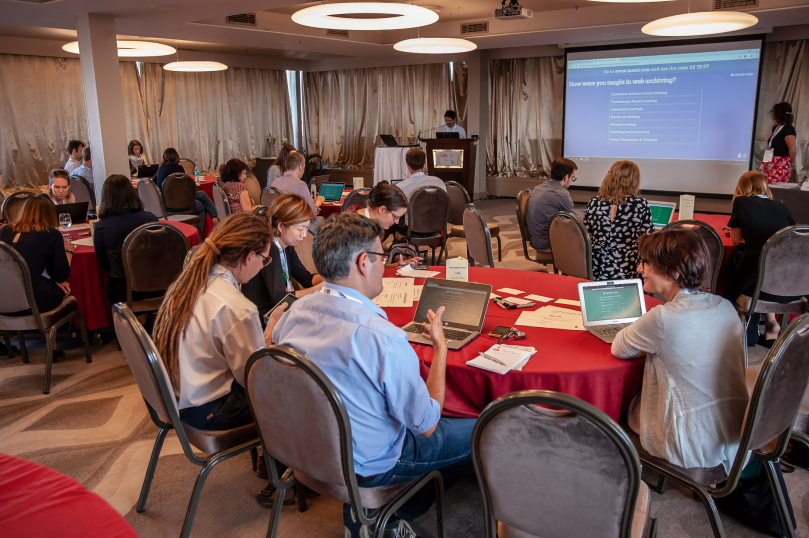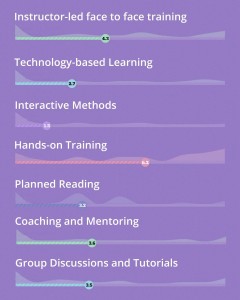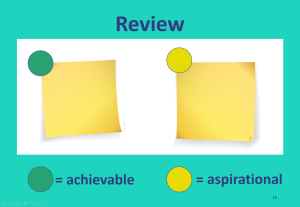This blog post is a summary of a workshop that took place at the 2019 IIPC Web Archiving Conference in Zagreb, Croatia. The abstract and the final slides used during the workshop are available on the IIPC website.
By Helena Byrne, Web Curator and Carlos Rarugal, Assistant Web Archivist at the British Library
Most people when learning can relate to the Benjamin Franklin quote
tell me and I forget, teach me and I may remember, involve me and I learn.*
It can be very challenging to find the most effective way to involve a trainee in web archiving and transfer your specialist knowledge. Web archiving is a relatively new profession that is constantly changing and it is only in recent years that a body of work from practitioners and researchers has started to grow. In addition, each web archiving institution has its own collection policies and many use their own web archiving technology meaning that there is no one size fits all solution to providing training to people who work in this field.
However, before taking on new strategies it is important to understand our own beliefs on training and what actions we currently take when training new staff. Reflecting on these points can help us to become more aware of any biases we may have in terms of preferred training delivery style which could be contradictory to what the trainee really needs.
What we did
Before we started the workshop participants answered a series of questions about their own experience of training or receiving training on web archives via a Menti poll. We then reviewed the training practices of the curatorial web archive team at the British Library and in groups reviewed what methods participants felt worked well or not.

Photo: Tibor God.
Menti Poll Results

Overall, there were about 26 participants in the workshop who had varying degrees of experience training people on how to work with their web archive. As shown in Slide 3, only 31% of participants train people in web archiving on a regular basis while 50% of participants train people occasionally and the remaining 19% don’t train other people in web archiving. Some of the people in this final category work as solo web archivists and don’t have any resources for additional staff.
When asked if there was a structured training programme on web archiving at their organisation, 65% of participants responded “no” while only 35% of respondents had a programme in place. Not surprisingly, when asked ‘how were you trained in web archiving?’, hands-on training was the most popular method used to train participants at the workshop.
Results of this poll can be viewed here.
Training practices at the British Library
During this workshop we reviewed common training methods and reflected on the current practices of the curatorial team of the UK Web Archive based at the British Library as well as how we would like to change these practices in the future. (Slides 7-8)
Group Discussion
Participants in small groups discussed a series of questions about how they train people in their institutions:
Questions
1. Who do you train about web archiving?
2. How do you currently train them?
3. What web archiving training resources do you have available to your team?
4. What methods do you use for training? Computer based, documentation (handouts, user guides etc.), one to one learning, shadowing etc.
After discussing these questions participants then placed their current training methods onto a scale of what they felt works and doesn’t work.
Brainstorming
 Overall there were 56 points filled in on the post-it notes by participants in 6 different groups. These can be loosely categorised into 10 categories:
Overall there were 56 points filled in on the post-it notes by participants in 6 different groups. These can be loosely categorised into 10 categories:
Reading list, videos, hands on training, documentation, networking, case studies, examples/modelling, verbal training, forums and tutorials. A more detailed breakdown of these categories can be viewed here.
Most of the points noted (30/56) were in the ‘what works’ section, (10/56) were neutral while only (8/56) of the points were in the ‘what doesn’t work’ section. However, there was some overlap with the ‘what works’ and ‘what doesn’t work’ sections, with some methods like videos and reading lists appearing in both sections but in different groups.
Review
 In the last workshop activity, participants voted, by using two coloured stickers, on what they considered most aspirational and most achievable training method.
In the last workshop activity, participants voted, by using two coloured stickers, on what they considered most aspirational and most achievable training method.
As you can see from the votes below the most popular activity that could be achieved in the short term by the workshop participants was hands-on individual training with 9 votes. While there was a split between participants who felt that writing manuals was achievable with 7 votes and those they felt that this was aspirational with 6 votes.

Conclusion
Overall participants were keen to see a training related event on the IIPC Web Archiving Conference programme. As the importance of web archiving grows, so too does the need for training in this field and it has become more evident that these responsibilities are falling on web archivists.
All the data collected during this workshop was shared with the IIPC Training Working Group and it is hoped that it will help inform the development of materials to support training within the field.
More information about the IIPC Training Working Group can be found here: http://netpreserve.org/about-us/working-groups/training-working-group/
References:
* Goodreads.com, ‘Benjamin Franklin > Quotes > Quotable Quote’, https://www.goodreads.com/quotes/21262-tell-me-and-i-forget-teach-me-and-i-may (accessed December 20, 2018).

[…] they joined web archiving teams. The majority of participants in a small poll organised during a workshop on training new starters in web archiving at last year’s Web Archiving Conference in Zagr…, confirmed that they received ‘on-the-job […]
LikeLike
[…] The IIPC blog was busy this month: National Széchényi Library reports back on another year of web archiving on the blog; summaries of the National Library of Luxembourg, National Library of New Zealand, Bibliothèque et Archives nationales du Québec, and the Bibliothèque nationale de France‘s coronavirus collecting; a blog post on the future of playback, specifically discussing pyweb and OpenWayback; announcement of the IIPC training program; discussion of Glam Workbench, which provides researchers with examples, tools, and documentation to help them explore and use the online collections of libraries, archives, and museums; exploration of previous annual meetings since this year’s meeting was cancelled; and reflections of training new web archivists. […]
LikeLike